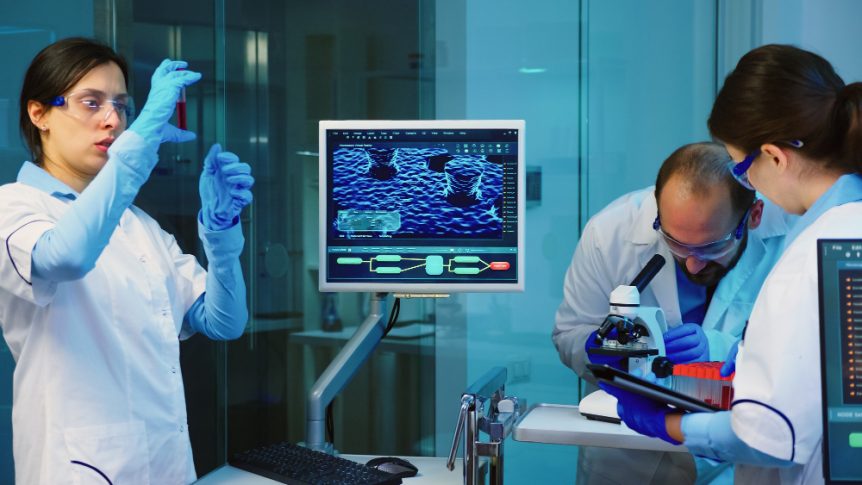In the ever-evolving landscape of healthcare, the resurgence of reshoring is catalyzing transformative changes, particularly in the production of medical devices and pharmaceuticals. This comprehensive article delves into recent news, exploring how reshoring is impacting the healthcare sector. From advancements in technology to ensuring supply chain resilience, we will unravel the multifaceted implications of reshoring in this critical industry.
Recent Developments in Reshoring Initiatives
Recent headlines underscore a strategic shift in the healthcare sector, with an increasing emphasis on reshoring medical device and pharmaceutical production. Global events and supply chain vulnerabilities have prompted a reevaluation of offshore manufacturing, leading to a renewed focus on the benefits of localized production. Reshoring initiatives are gaining momentum, driven by the need for agility, quality control, and rapid response capabilities in healthcare.
Advancements in Medical Device Manufacturing
Reshoring is reshaping the landscape of medical device manufacturing, fostering innovation and efficiency. The proximity of production facilities allows for tighter collaboration between designers, engineers, and manufacturers. This collaborative synergy is accelerating the development of cutting-edge medical devices, from precision diagnostics to advanced imaging technologies.
Moreover, the focus on reshoring medical device production enhances regulatory compliance and quality assurance. Localized manufacturing facilitates adherence to stringent standards, ensuring that medical devices meet or exceed regulatory requirements. This commitment to quality is paramount in the healthcare sector, where patient safety is non-negotiable.
Securing the Pharmaceutical Supply Chain
The pharmaceutical industry is experiencing a paradigm shift with the reshoring of production facilities. Recent challenges, such as disruptions in the global supply chain, have underscored the need for a more resilient and responsive pharmaceutical manufacturing ecosystem. Reshoring pharmaceutical production addresses these concerns by providing greater control over the supply chain and reducing dependency on distant manufacturing hubs.
In addition to supply chain resilience, reshoring pharmaceutical production enhances the speed of drug development and distribution. The agility afforded by localized manufacturing allows for rapid responses to emerging health crises, ensuring timely access to life-saving medications.
Addressing Public Health Challenges
The global COVID-19 pandemic highlighted vulnerabilities in the healthcare supply chain, prompting a reexamination of production strategies. Reshoring is playing a pivotal role in addressing public health challenges by bolstering the capacity to respond to pandemics and health emergencies. Localized manufacturing enables quicker adaptation to evolving healthcare needs and ensures a more reliable supply of essential medical products.
Investing in Technological Advancements
Reshoring is not just a relocation of production; it is an investment in technological advancements that elevate the standards of healthcare. The integration of automation, artificial intelligence, and advanced manufacturing processes enhances the precision and efficiency of medical device and pharmaceutical production. This infusion of technology not only improves product quality but also positions the healthcare industry at the forefront of innovation.
Challenges and Opportunities
While reshoring brings significant advantages to the healthcare sector, challenges persist. Balancing the cost implications of reshoring with the need for affordable healthcare, addressing potential disruptions during the transition, and ensuring a skilled workforce are among the challenges that industry leaders navigate. However, these challenges also present opportunities for collaboration, innovation in workforce development, and the establishment of sustainable practices.
The localization of pharmaceutical and medical device manufacturing creates opportunities for community engagement, job creation, and skills development. Initiatives that focus on training the local workforce in advanced manufacturing technologies contribute to the long-term sustainability of the healthcare industry.
The reshoring of medical device and pharmaceutical production is a pivotal moment in the evolution of the healthcare landscape. From ensuring supply chain resilience to fostering innovation and addressing public health challenges, reshoring brings transformative changes that benefit patients, healthcare professionals, and the industry as a whole.
As the healthcare sector embraces the advantages of reshoring, it positions itself for a future defined by responsiveness, technological excellence, and enhanced patient outcomes. The integration of localized manufacturing processes not only strengthens the healthcare industry’s ability to navigate crises but also lays the foundation for a more robust and sustainable healthcare ecosystem. In reshaping the healthcare landscape, reshoring emerges as a catalyst for positive change, advancing the industry towards greater resilience and innovation.







Leave a Reply